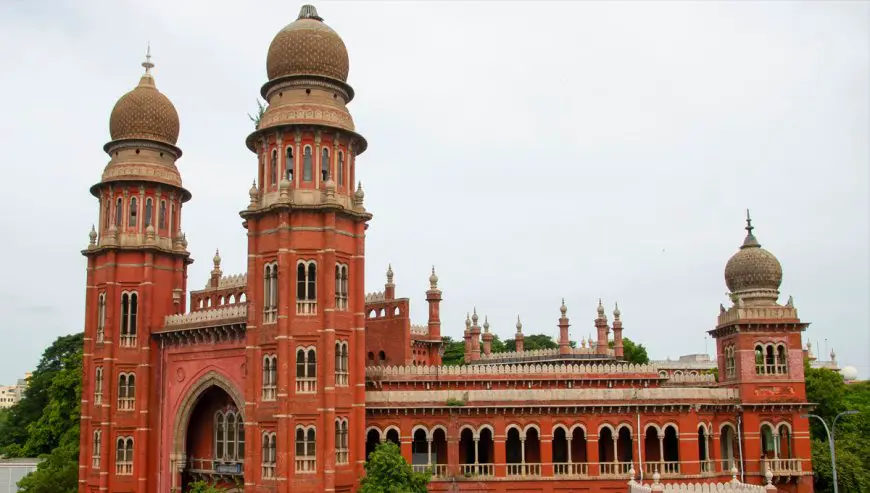Madras High Court's Landmark Ruling: Citizens Can Now Legally Reject Caste and Religion
In a progressive verdict, the Madras High Court has directed the Tamil Nadu government to issue ‘No Caste, No Religion’ certificates, recognizing the right of individuals to reject caste and religious identities.

A Victory for Individual Rights: Madras HC Upholds Caste-Free, Religion-Free Identity
In a groundbreaking judgment, the Madras High Court has directed the Tamil Nadu state government to officially issue ‘No Caste, No Religion’ certificates to individuals who seek to live outside the framework of caste and religious identity. The ruling reinforces the constitutional right to individual liberty and identity, bringing new momentum to ongoing debates on secularism and caste abolition in India.
The directive came during a hearing on June 11, 2025, where Justice GR Swaminathan emphasized that if an individual wishes to declare themselves free of caste and religion, the state has a constitutional obligation to acknowledge and certify that choice.
The full judgment is available on the Madras High Court official portal.
Background: A Decade-Long Legal Battle for Identity Autonomy
The case was filed by a citizen from Madurai who had previously lived and raised his children without caste or religious affiliations. He petitioned the court after local authorities refused to issue an official certificate acknowledging this caste- and religion-free status.
This isn’t the first time such a request has reached the courts. A similar case in 2010 saw K R Devamanoharan, a man who raised his children without caste or religious affiliation, receive such a certificate. However, such recognition was often inconsistent, localized, and discretionary—not backed by policy or law.
This new ruling effectively sets a judicial precedent that will bind administrative authorities in Tamil Nadu—and potentially across other states—if similar petitions are filed.
Key Observations from the Judgment
Justice Swaminathan made several significant remarks in the ruling:
-
"A person can very well say that he/she does not belong to any caste or religion. That is a manifestation of their constitutional identity."
-
The right to reject caste and religion stems from Articles 14, 19, and 21 of the Constitution of India, which guarantee equality, freedom of expression, and the right to life and liberty.
-
The state cannot deny certification on the grounds that caste or religion is a mandatory identifier for governance.
These observations underscore a growing judicial trend to affirm identity choices rooted in constitutional morality rather than societal custom.
You can read a detailed legal commentary on similar precedents in this article by the Indian Constitutional Law and Philosophy blog.
Implications for Indian Society and Governance
The Madras HC’s ruling holds wide-reaching implications:
-
Educational and Employment Documentation:
Individuals may now opt out of entering caste or religious data in admission or recruitment forms. While caste-based reservations remain constitutionally valid, opting out is now recognized as a voluntary constitutional choice. -
Census and State Records:
The ruling opens the door for the government to digitally update citizen records to include a "No Caste / No Religion" option in its databases and services. This may influence future iterations of the Census of India, potentially providing data on the number of Indians who reject caste and religious labels. -
Social Movements and Youth Identity:
With growing support for Ambedkarite and secular movements, especially among the youth, this judgment may act as judicial validation for those seeking to move beyond rigid societal categories. The decision aligns with ideas championed by thinkers like Periyar and Dr. B. R. Ambedkar. -
Legal Consistency Across States:
Though this judgment applies only to Tamil Nadu for now, it sets a powerful precedent for Public Interest Litigations (PILs) in other high courts across India. The legal momentum could push for national guidelines on identity certification in a caste-free and religion-neutral format.
Political and Public Response
The judgment has been hailed by civil rights organizations, legal experts, and political figures who advocate for individual liberty and a casteless society. The People’s Union for Civil Liberties (PUCL) called the verdict a “watershed moment” in Indian secularism and urged the Centre to consider uniform policy implementation.
Meanwhile, critics have argued that the move may complicate reservation logistics. Some political parties fear that individuals could misuse the certificate system to circumvent caste-based policies. Legal scholars, however, clarify that opting out is voluntary and does not automatically entitle or disqualify someone from existing affirmative action schemes.
For a deeper examination of caste in public policy, explore this research by the Centre for Policy Research.
What Comes Next?
The Tamil Nadu government has been asked to formulate clear guidelines for the issuance of such certificates within a fixed time frame. Citizens who wish to receive a “No Caste, No Religion” certificate will likely need to submit:
-
A personal affidavit affirming their position
-
Proof of consistent identification practices (e.g., school records, government forms)
-
Consent declarations for dependents (in the case of minors)
As per Justice Swaminathan, the process must be respectful, non-intrusive, and administratively streamlined.
Conclusion: Identity Reclaimed by Choice
The Madras High Court’s order is more than just a legal development—it’s a philosophical declaration affirming that Indian identity can rise above imposed social categories. While caste and religion remain deeply embedded in the nation's socio-political fabric, the court’s directive creates a new legal pathway for individuals to assert self-defined identity.
If implemented nationally, this could become one of the most transformative legal interventions in India's long-standing discourse on equality, liberty, and secularism.
For continued coverage on caste reform, identity rights, and legal precedents in India, follow the updates from LiveLaw and Bar & Bench.














